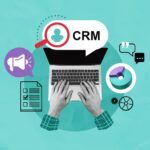
You’re in manufacturing. You build things, real tangible things. Marketing might feel like a different world, focused on catchy slogans rather than capability and quality.
Maybe you’ve heard about inbound marketing, this idea of drawing customers in instead of shouting at them. You might be asking yourself, does inbound marketing work for manufacturing companies?
It’s a fair question, given how different the manufacturing industry can feel. Many manufacturers rely heavily on established relationships, industry connections, and maybe a bit of traditional marketing or trade shows. The sales cycle is often long, technical, and built on trust.
So, does inbound marketing work for manufacturing companies when the old ways seem so ingrained? Let’s explore that because the landscape is shifting, even for manufacturers. Implementing an effective inbound marketing strategy can make a significant difference.
So, What Exactly is Inbound Marketing Anyway?
Before we examine its effectiveness, let’s quickly define inbound marketing. Think of it as magnetic marketing. Instead of pushing messages out with outbound marketing (like paid ad campaigns, cold calls, direct mail), you pull potential customers in.
How? By creating valuable marketing content and experiences that address their problems and needs. This includes developing a solid content marketing plan as part of your overall digital marketing efforts. Good content helps attract potential buyers looking for solutions.
This means things like helpful blog posts, detailed buying guides, informative video content, and useful tools. Potential customers find this content when they use a search engine to look for solutions online. They come to you because you’re offering something genuinely helpful, not just a sales pitch, building your online presence.
The goal is to build trust and credibility, enhancing brand awareness. You become a go-to resource, positioning your manufacturing company as a thought leader in its field. This naturally helps attract qualified online leads and makes the sales conversation much warmer later on.
The Old Playbook vs. The New Reality
For years, marketing strategies for a manufacturing business might have looked like this: attend major trade shows, print brochures, maybe run ads in trade publications, and rely on your sales team’s network. These traditional marketing methods still have their place, but they have limitations. Trade shows are expensive and only happen periodically, while print ads offer limited trackable performance indicators.
Buyers have changed too, influencing effective marketing approaches. Even in highly technical B2B industries like manufacturing, people start their research online. A study by Gartner revealed that B2B buyers spend only 17% of their time meeting with potential suppliers during the purchasing decision process; much of the remaining time is spent researching independently online.
They look for technical specifications (like spec sheets), compare vendors, read reviews, and seek solutions to complex problems. If your manufacturing company isn’t visible online where these business buyers are looking, you’re missing out. They are searching for answers long before they pick up the phone or agree to a meeting, often well into the buyer’s journey.
Why Manufacturers Hesitate About Inbound
It’s understandable why some manufacturing leaders might be skeptical about allocating resources to inbound marketing campaigns. Common concerns often include:
- “Our target audience isn’t really online.” (Spoiler: They are actively using search engines).
- “Our products are too complex for simple blog posts.” (Detailed educational content is actually ideal).
- “Inbound marketing sounds like it’s for consumer brands.” (It’s highly effective for B2B lead generation).
- “We get business through relationships and reputation.” (Inbound enhances reputation and supports relationships).
- “How can content creation possibly sell a million-dollar piece of equipment?” (It builds the trust needed for high-value sales).
These points seem valid on the surface. Manufacturing sales often involve engineers, procurement specialists, and C-suite executives. The decision stage involves deep technical understanding and significant investment.
But these are precisely the reasons why an inbound marketing strategy is so powerful for manufacturers. Addressing buyer pain points with valuable information positions you perfectly.
Okay, But Does Inbound Marketing Work for Manufacturing Companies Specifically?
Yes, absolutely. Let’s break down why it’s not just viable but often highly effective for manufacturers who implement it correctly as part of their marketing strategy.
Your Target Audience IS Online
Engineers, designers, purchasing managers, plant supervisors – they all use search engines like Google daily. They look for information on materials, processes, compliance standards, and potential suppliers. Understanding your buyer persona is critical to reaching them effectively.
They use search engines to find answers to technical questions and solutions to their manufacturing challenges. They might search for “best material for high-temperature application” or “CNC machining tolerances guide.” Crafting content around these search terms is key for search engine optimization.
If your website provides answers through blog posts or downloadable guides, you attract these exact individuals. They find you when they have a specific need, making them highly relevant potential customers and generating valuable online leads.
Building Trust in a Long Sales Cycle
Manufacturing sales rarely happen overnight; the sales cycle can be extensive. They involve multiple decision-makers, technical evaluations, and considerable budget approvals. This long sales cycle is where inbound marketing truly excels.
Consistent, valuable marketing content builds trust gradually. By offering helpful information without immediately asking for the sale, you position your manufacturing company as a knowledgeable partner, a thought leader in the manufacturing industry. This process helps nurture leads effectively.
Email marketing nurturing sequences can keep your company top-of-mind. Sharing relevant case studies or technical insights over weeks or months helps attract interest and maintain engagement. This lead nurture process builds rapport before a sales conversation even begins.
Educating Complex Buyers
Your products might be highly technical. That’s perfect for inbound marketing. It gives you a platform to explain those complexities clearly through various forms of educational content.
Think detailed blog posts, comprehensive white papers, explainer video content, webinars comparing different processes, or downloadable CAD files. This type of marketing content directly addresses the information needs of business buyers in the manufacturing sector. Developing multiple buyer personas helps target content accurately.
This content educates potential buyers, helps them understand your capabilities, and differentiates you from competitors. It answers their technical questions proactively, building confidence in your expertise. Buyers appreciate companies that help them make informed decisions during their purchasing decision journey.
Generating More Qualified Leads
Outbound marketing methods often involve casting a wide net, sometimes resulting in low-quality leads. Inbound marketing, however, attracts prospects already interested in what you do. Someone downloading your guide on “Choosing the Right Polymer for Injection Molding” is likely a far more qualified lead than someone you cold-called randomly.
These inbound leads have self-selected; they raised their hand by engaging with your content. This usually means sales conversations initiated by the sales team are more productive. The potential customer already understands some basics about your solutions and sees your company as a helpful resource.
Focusing on inbound lead generation can improve your conversion rate significantly. It aligns marketing efforts with the actual needs and research habits of your target market. This makes it a cornerstone of effective manufacturing marketing.
Cost-Effectiveness Over Time
While inbound marketing requires an initial investment in content creation and developing an inbound marketing strategy, it can be very cost-effective long term. A valuable blog post or guide can attract online leads for years after it’s published. Compare this to a paid ad generation campaign or trade show sponsorships, where the leads stop as soon as you stop paying.
Quality marketing content becomes a company asset that continuously works for you. Studies like HubSpot’s State of Inbound report consistently show that inbound leads tend to cost less than outbound leads over time. It shifts marketing from purely an expense item to a measurable investment with clear performance indicators.
Calculating the return on investment (ROI) for inbound marketing efforts becomes clearer as leads convert through the sales funnel. This data justifies continued investment and helps refine the overall marketing strategy. Effective marketing balances cost and results.
Demonstrating Expertise and Thought Leadership
Manufacturing is built on expertise and innovation. Inbound marketing lets you showcase that expertise to the world. By publishing insightful articles, presenting webinars, or sharing detailed case studies of challenging projects you’ve solved, you demonstrate your company’s deep knowledge.
This builds your brand’s presence and reputation as a thought leader in your specific niche within the manufacturing industry. Thought leadership helps you stand out not just on price, but on capability, quality, and innovation. It enhances overall brand awareness.
Business buyers want to work with experts they trust to solve their pain points. Consistently providing valuable insights reinforces that trust. This strengthens your online presence and positions your manufacturing business as an authority.
Measurable Results and ROI
Unlike some traditional marketing tactics, digital marketing, especially inbound, provides detailed analytics. You can track website traffic, see which content pieces are most popular, measure lead generation from specific offers, and follow leads through your sales funnel using CRM and marketing automation tools.
This data allows your marketing team members to see exactly what’s working and what isn’t. You can calculate the return on your marketing investment (ROI) much more clearly by tracking key performance indicators. Metrics like website visits, content downloads, lead quality, and conversion rate provide actionable insights.
This helps justify marketing spend and continually refine your marketing strategy for better results. Measuring your marketing campaigns allows for continuous improvement and demonstrates the value marketing brings to the manufacturing company.
How Manufacturers Can Put Inbound Marketing Into Action
Saying inbound works is one thing; knowing how to make it work for your specific manufacturing business is another. A successful inbound marketing strategy requires careful planning and execution. Here are key tactics manufacturers can use:
- Search Engine Optimization (SEO): This is foundational for online visibility. Research the keywords your potential buyers use when searching online (e.g., “precision sheet metal fabrication,” “5-axis machining services Texas,” “aerospace parts manufacturer”). Proper engine optimization involves optimizing your website pages and marketing content around these terms so you show up prominently in search engine results. National SEO would be ideal for most manufacturer businesses, but local SEO still has the potential to help in certain areas as well.
- Content Marketing: This is the core engine of any inbound marketing effort. Create high-quality, educational content that addresses your target audience’s pain points and questions throughout the buyer’s journey. A well-planned content calendar helps maintain consistency.
- Types of Content: Diversify your marketing content to appeal to different preferences.
- Blog Posts: Discuss industry trends, material properties, design considerations, troubleshooting tips, and answer common questions.
- Case Studies: Detail how you solved a specific problem for a client, showcasing your capabilities and results.
- White Papers & Ebooks: Offer in-depth guides, buying guides, or research on technical topics, downloadable in exchange for contact information (a key lead generation campaign tactic).
- Videos: Create video content showing your facility, demonstrating processes, explaining complex concepts visually, or featuring team members.
- Webinars: Host live online sessions on technical subjects, allowing interaction and Q&A, positioning you as a thought leader.
- Spec Sheets: Provide easily accessible, detailed specifications for your products or capabilities.
- Premium Content & Landing Pages: Offer your most valuable content (guides, white papers, webinar recordings, spec sheets) behind a simple form on a dedicated landing page. This marketing tactic converts website visitors into online leads.
- Email Marketing: Don’t just collect leads; implement a lead nurture strategy. Send targeted emails using marketing automation tools to share relevant content, company news, or invitations to events. Segmenting your list based on buyer personas or interests allows you to send emails with the most relevant information to nurture leads effectively.
- Social Media (Especially LinkedIn): Utilize social networks, particularly LinkedIn for B2B manufacturing companies. Share your content, engage in relevant industry groups, and connect with potential customers, partners, and industry influencers to expand your brand’s presence.
- A Professional, Usable Website: Your website is your digital storefront and central to your online presence. It needs to be professional, easy to navigate (especially on mobile devices), clearly showcase your capabilities, and make it simple for visitors to contact you or download content.
Addressing Specific Manufacturing Challenges with Inbound
Let’s circle back to some of those initial doubts and how a tailored inbound marketing strategy addresses the specific context of the manufacturing industry.
Technical Products? Perfect. Create detailed spec sheets, comparison charts found in buying guides, application notes, video demos, and technical blog posts explaining the nuances. Technical business buyers actively seek this type of detailed information.
Niche Audience? Great. Highly specific educational content and targeted search engine optimization will attract that exact niche audience far better than broad traditional marketing or a generic paid ad. You can focus your marketing efforts precisely on your ideal target market.
Long Sales Cycles? Ideal for lead nurturing campaigns. Use email marketing workflows and automation tools to drip valuable content over time, keeping you top-of-mind and building the relationship until potential buyers reach the decision stage. This consistent communication supports the lengthy purchasing decision process typical in manufacturing.
Need Relationships? Inbound marketing supports relationship building, it doesn’t replace it. Your sales team can use your insightful marketing content as valuable resources to share with prospects and existing clients. It gives them reasons to reach out beyond just asking for a meeting, adding value to their interactions.
Here is a table summarizing how inbound tactics address manufacturing needs:
| Manufacturing Challenge | Inbound Marketing Solution | Key Tactics Involved |
|---|---|---|
| Complex/Technical Products | Educate buyers thoroughly | Detailed blog posts, white papers, video content, spec sheets, case studies |
| Niche Target Audience | Attract specific buyers effectively | Targeted SEO keywords, specialized educational content, LinkedIn groups |
| Long Sales Cycle | Build trust and stay top-of-mind | Email marketing (lead nurture sequences), consistent content creation, marketing automation |
| Need for Strong Relationships | Support sales team efforts | Content as sales enablement tools, webinars for interaction, thought leadership building |
| Proving Expertise | Demonstrate industry knowledge | Thought leadership articles, technical guides, presenting at virtual events, case studies |
| Generating Qualified Leads | Attract interested prospects | Premium content offers, landing pages, SEO optimization, addressing pain points |
| Measuring Marketing ROI | Track effectiveness clearly | Website analytics, CRM tracking, conversion rate monitoring, tracking performance indicators |
Picture This: Inbound in Action
Imagine a manufacturing company that produces custom enclosures for sensitive electronics. Their target audience includes design engineers and project managers in aerospace and medical device companies. They have clearly defined their buyer personas and understand their pain points.
They start an inbound marketing program, guided by specific marketing goals and a content calendar. They publish blog posts like “Material Selection for EMI Shielding Enclosures” and “Design Considerations for Waterproof Housings.” They create a downloadable “Custom Enclosure Design Checklist,” a valuable piece of educational content available via a landing page as part of a lead generation campaign.
An engineer searching for “EMI shielding best practices” finds their blog post through a search engine. Impressed, she downloads the checklist, becoming an online lead. Over the next few weeks, she receives automated emails via their email marketing system, sharing links to related case studies and a video tour of their advanced manufacturing facility – a perfect lead nurture flow.
When her company starts a new project needing custom enclosures, this manufacturer is already familiar and trusted, thanks to the consistent, helpful marketing content. She requests a quote, already understanding their capabilities from the resources provided. That’s effective manufacturing inbound marketing making the connection and warming up the potential customer for the sales team.
This inbound marketing approach doesn’t replace the need for skilled team members in sales. Instead, it provides them with better, more informed potential buyers to engage with. It streamlines the front end of the sales process, making the entire marketing and sales function more efficient and effective.
Conclusion: So, Does Inbound Marketing Work for Manufacturing Companies?
The evidence strongly points to yes. While the inbound marketing strategy needs careful application to the specific needs and target audience of a manufacturing company, the core principles of attracting, engaging, and delighting potential customers through valuable content absolutely apply.
It directly addresses how modern B2B business buyers research and make purchasing decisions in the digital age. It leverages search engines, social networks, and email marketing to build relationships and generate qualified online leads. An effective inbound approach focuses on understanding the buyer’s journey and addressing pain points with helpful information.
For manufacturers looking to grow, achieve their marketing goals like consistent lead generation, improve their conversion rate, and build lasting authority and brand awareness in their field, exploring inbound marketing is a smart move. Asking “does inbound marketing work for manufacturing companies?” is the first step; the next is adapting its power to your specific manufacturing business context and leveraging tools like marketing automation to enhance your marketing efforts.












